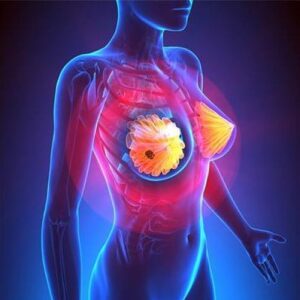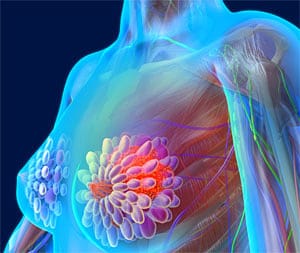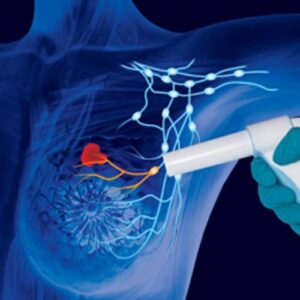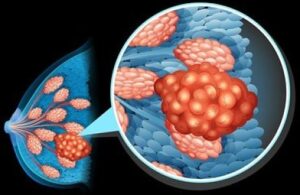Breast cancer is the second most common cancer in women and men worldwide! Many of us still believe that this is a ‘female’ disease – but the truth is that ‘men’ too – are diagnosed with breast cancer.
Breast cancer starts in the cells of the breast. A cancerous (malignant) tumour is a group of cancer cells that can grow into and also spread (metastasize) to other parts of the body. Cells in the breast sometimes change and no longer grow or behave normally. These changes may lead to non – cancerous (benign) breast conditions – such as a atypical hyperplasia and cysts. They can also lead to non – cancerous tumours such as intraductal papilomas.
Really paying attention to how your breasts normally look and feel is an important part of breast health. Although having regular screening tests for breast cancer is important, mammograms do not necessarily find every breast cancer. This means that it is also important for you to be on the lookout for changes in your breasts and to really keep an eye out for the signs and symptoms of breast cancer.
The most common symptom of breast cancer is a new lump or mass. A painless, hard mass that has irregular edges is more likely to be cancer, but breast cancers can be tender, soft, or round. They can even be painful. For this reason, it is important to have any new breast mass, lump, or breast change checked by an experienced healthcare professional.



Other possible symptoms of breast cancer include:
Swelling of all or part of a breast (even if no lump is felt)
Skin dimpling (sometimes looking like an orange peel)
Breast or nipple pain
Nipple retraction (turning inward)
Nipple or breast skin that is red, dry, flaking or thickened
Nipple discharge (other than breast milk)
Swollen lymph nodes
Factors that are associated with an increased risk of breast cancer include:
° Increasing age
° A personal history of breast cancer conditions
° A family history of breast cancer
° Inherited genes that increase cancer risk
° Radiation exposure
° Obesity
° Beginning your period at a younger age (before age 12)
° Beginning menopause at an older age if you began menopause at an older age, you’re more likely to develop breast cancer
° Having your first child at an older age
° Having never been pregnant
° Postmenopausal hormone therapy
° Drinking alcohol










